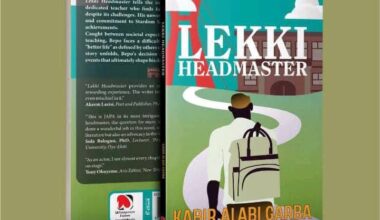The Unified Tertiary Matriculation Examination (UTME) 2025 syllabus for Use of English is designed to assist candidates in their preparation for the examination. The primary objectives are to evaluate candidates’ abilities to:
- Communicate effectively in both written and spoken English.
- Utilize the English language for academic purposes at the tertiary level.
Syllabus Structure
The syllabus is divided into three main sections:
- SECTION A: Comprehension/Summary
- SECTION B: Lexis and Structure
- SECTION C: Oral Forms
Section A: Comprehension/Summary
Topics Covered:
- Description
- Narration
- Exposition
- Argumentation/Persuasion
Assessment Details:
- Two passages will be provided, one of which will be a cloze test, each approximately 200 words long and reflecting various disciplines.
- Questions will assess:
- Overall comprehension of the passages.
- Understanding of vocabulary, phrases, clauses, sentences, figures of speech, and idioms.
- Coherence and logical reasoning (deductions and inferences).
- Synthesis of ideas from the passages.
Objectives:
Candidates should be able to:
- Identify main points and topic sentences.
- Determine implied meanings.
- Recognize grammatical functions of words and expressions.
- Infer the writer’s intentions, including mood and attitude.
Section B: Lexis and Structure
Topics Covered:
- Synonyms
- Antonyms
- Homonyms
- Clause and sentence patterns
- Word classes and their functions
- Grammar aspects (mood, tense, aspect, agreement, degree, question tags)
- Punctuation and spelling
- Ordinary, figurative, and idiomatic usage
Objectives:
Candidates should be able to:
- Identify words in ordinary, figurative, and idiomatic contexts.
- Determine synonyms and antonyms.
- Differentiate between correct and incorrect punctuation and spelling.
- Recognize grammatical patterns in use.
- Interpret information conveyed in sentences.
Section C: Oral Forms
Topics Covered:
- Vowels (monophthongs and diphthongs)
- Consonants (including clusters)
- Rhymes (including homophones)
- Word stress (monosyllabic and polysyllabic)
- Intonation (emphatic stress)
Objectives:
Candidates should be able to:
- Distinguish between types of vowels.
- Differentiate between types of consonants.
- Identify correct accentuation in individual words and connected speech.
Examination Structure
SECTION A: Comprehension/Summary
- 1 comprehension passage – 5 questions
- 1 cloze passage – 10 questions
- 1 reading text – 10 questions
SECTION B: Lexis and Structure
- Sentence interpretation – 5 questions
- Antonyms – 5 questions
- Synonyms – 5 questions
- Sentence completion – 10 questions
SECTION C: Oral Forms
- 10 questions
Total Questions: 60
Recommended Texts
- Attah, M. O. (2013). Practice in Spoken English for Intermediate and Advanced Learners. Maiduguri: University of Maiduguri Press.
- Bamgbose, A. (2002). English Lexis and Structure for Senior Secondary Schools and Colleges (Revised Edition). Ibadan: Heinemann.
- Banjo, A. et al (2004). New Oxford Secondary English Course Book Six for Senior Secondary Schools. Ibadan: UP Plc.
- Caesar, O. J. (2003). Essential Oral English for Schools and Colleges. Lagos: Tonad Publishers Limited.
- Daniel Jones (2011). Cambridge English Pronouncing Dictionary. Cambridge: Cambridge University Press.
- Egbe, D. I (1996). Mastering English Usage and Communication Skills. Lagos: Tisons.
- Elugbe, B. (2000). Oral English for Schools and Colleges. Ibadan: Heinemann.
- Grant, N. J. H., Nnamonu, S., & Jowitt, D. (1998). Senior English Project 3 (New Edition). Harlow: Longman.
- Idowu, O. O., Sogbesan, T.S., Adofo, A.K., Burgess, D.F., & Burgess, L.J. (1998). Round-up English: A Complete Guide. Lagos: Longman.
- Idris, U. (2001). Oral English at Your Fingertips for Schools and Colleges. Lagos: M. Youngbrain Publishers.
- Kabir Alabi Garba (2025). The lekki headmaster – Jamb recommended text
Download use of English Past Question and Answer




